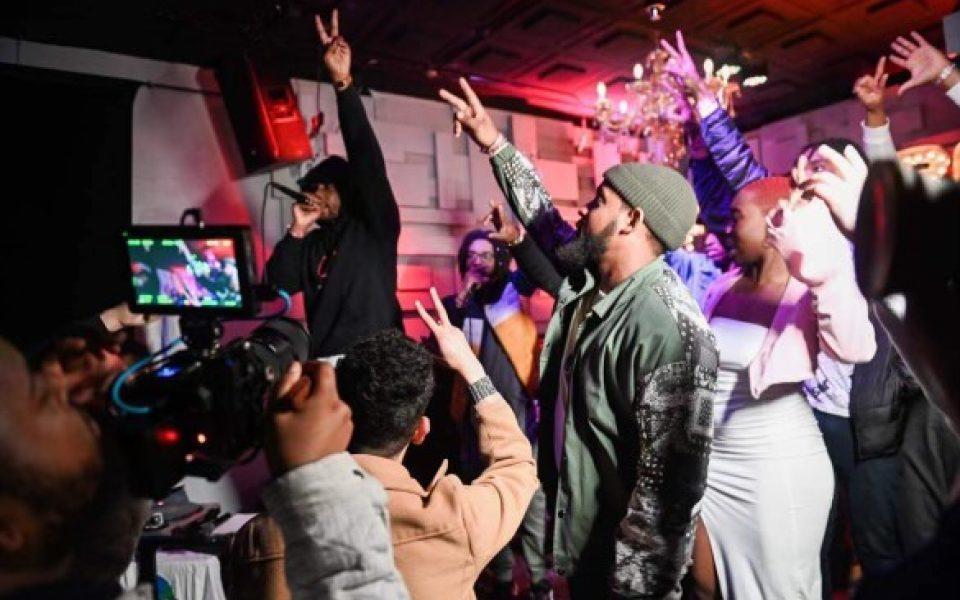Is Greensboro on track to become the next Music City? Sound Music Cities, a national organization that studies local music scenes, has launched an online survey to learn about our region’s music scene. The Greater Greensboro Music Census is gathering insights on the needs of the local music community to shape future investments by the private, public, and philanthropic sector.
Over the next three weeks, musicians, venue owners, and other industry professionals are encouraged to complete a short survey at gsomusiccensus.org and share their perspectives on the assets and barriers of Greensboro’s music scene. The online questionnaire can be completed in less than 15 minutes with any device that has internet access.
“If you sing, write, record, produce, teach, or host live music, we want you take the survey,” says Dena Maginness-Jeffrey, Director of Community Engagement at the Community Foundation of Greater Greensboro, a key supporter of this initiative. “The more diverse voices that participate, the richer our insights will be.”

While Greensboro boasts numerous live music venues such as the Steven Tanger Center for the Performing Arts, the Carolina Theatre, the Greensboro Coliseum, the Flat Iron, and a variety of breweries, coffee shops, and music festivals, there’s always room for improvement.
“The goal is to support the local musicians the city already has and attract new ones, expanding the live music options for people who love it,” says Maginness-Jeffrey. “If we want to become a true music-friendly city, we have to ask ourselves what enhancements can be made.”
To see what is possible, look at Greensboro’s vibrant and nationally recognized public art scene.
Sustained and substantial investments by the public, private, and philanthropic sectors has produced world-class visual works by acclaimed local, regional, and national artists for locals and visitors to enjoy.
Maginnes-Jeffrey envisions collaboration akin to the city’s visual art scene, foreseeing benefits not only in music but across the region’s social, cultural, and economic landscape. “Music is one of those things that brings people together. Data from the Music Census will signal where resources are needed and sharpen the focus of music-minded supporters.”
Results of the census will be released publicly this spring, and the report will include a data deck, perspectives on diversity, equity, and inclusion, and actionable findings.
Broad participation by the music community in the Music Census is vital to this initiative’s success. “Until we understand the data’s insights,” Maginnes-Jeffrey explains, “we won’t know where to direct our efforts.”
The Music Census’s online survey is tailored to different respondent categories such as creatives, venue owners, and industry professionals. It delves into participants’ personal connections with music, explores potential events and venues, and seeks input on expectations for action. Additionally, aside from multiple-choice questions, respondents have the opportunity to provide comments for open-ended inquiries towards the end of the survey.
Besides the Community Foundation of Greater Greensboro, other lead partners include the Greater Greensboro Chamber of Commerce and the Arts Council of Greater Greensboro, as well as over 50 community engagement partners.
To participate in the Greater Greensboro Music Census, visit gsomusiccensus.org.
Join the First Amendment Society, a membership that goes directly to funding TCB‘s newsroom.
We believe that reporting can save the world.
The TCB First Amendment Society recognizes the vital role of a free, unfettered press with a bundling of local experiences designed to build community, and unique engagements with our newsroom that will help you understand, and shape, local journalism’s critical role in uplifting the people in our cities.
All revenue goes directly into the newsroom as reporters’ salaries and freelance commissions.


Leave a Reply